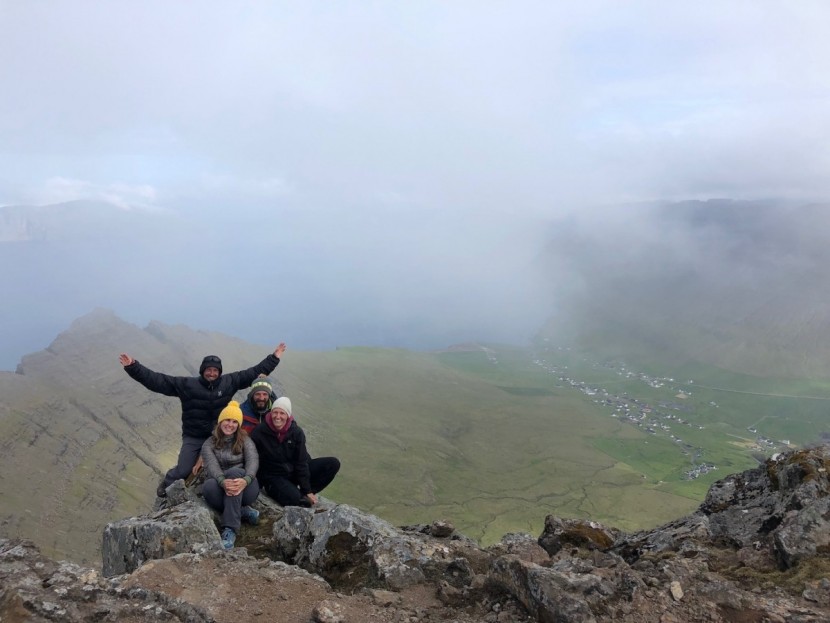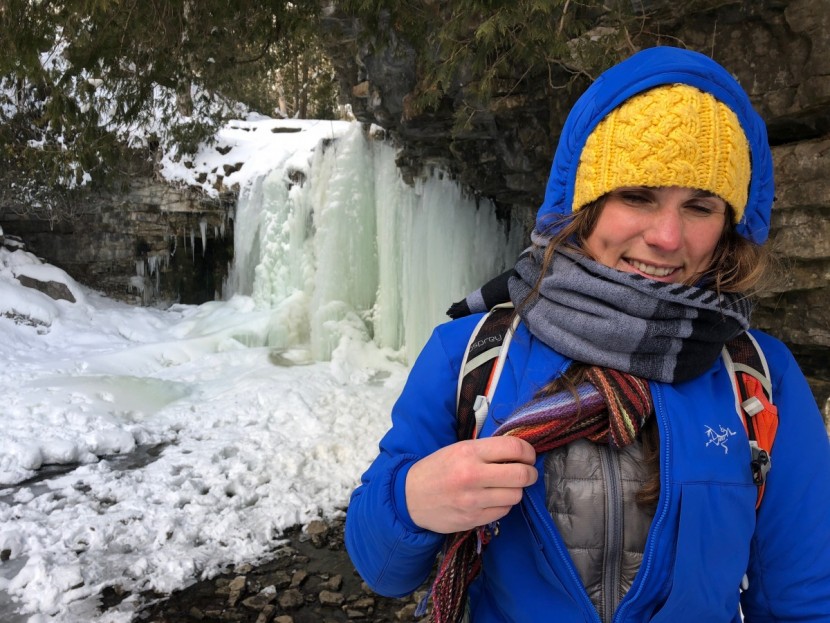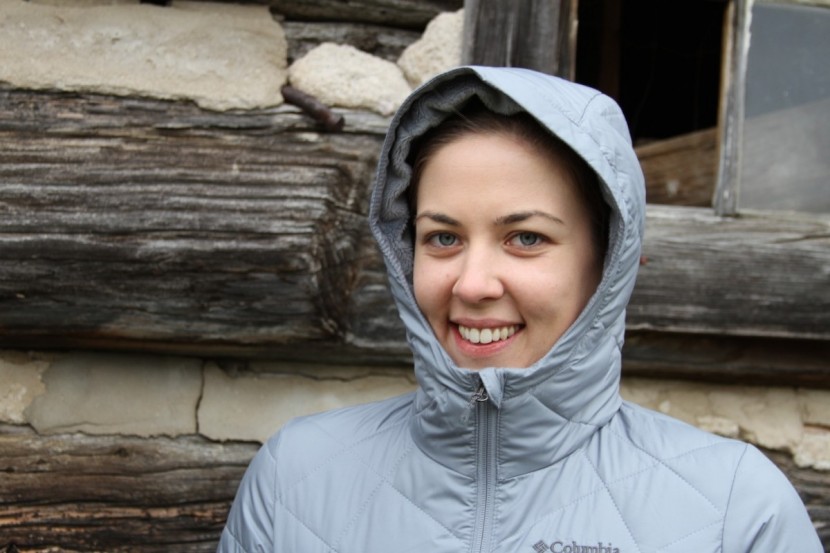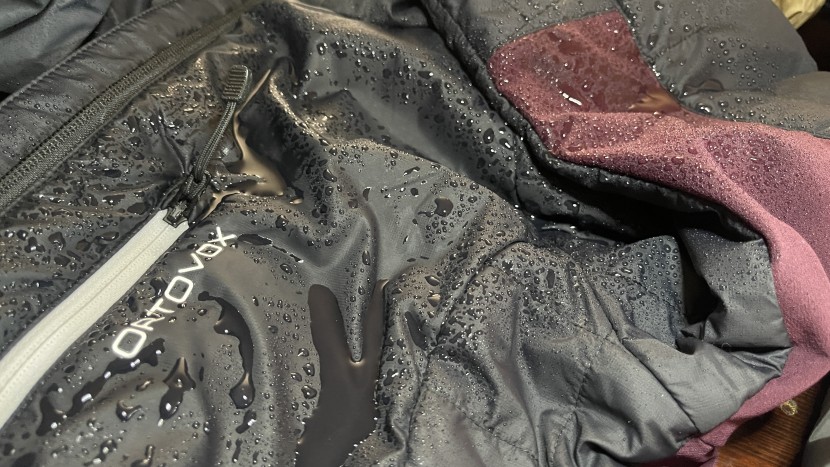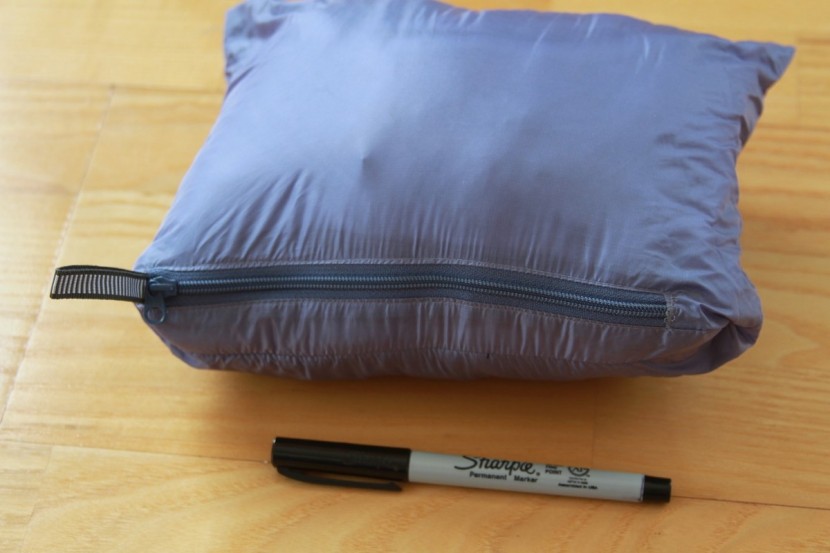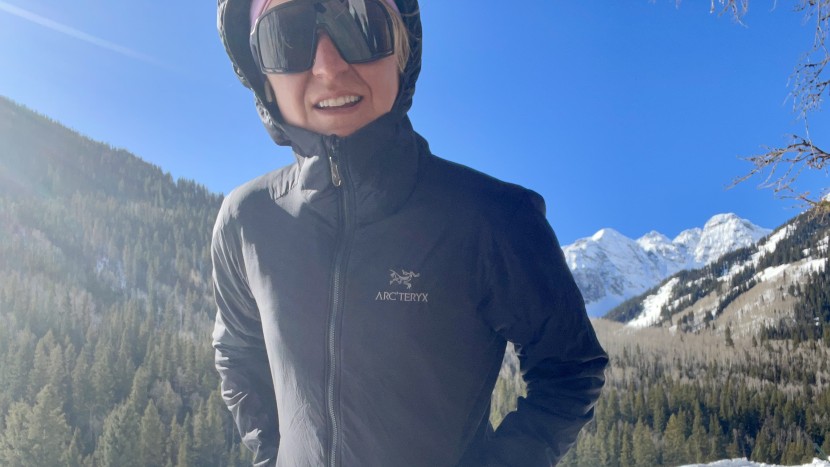To discover the best insulated jacket for every activity, we wore each one in everything from snowy sub-zero temperatures of Canada, Colorado and Alaska, to the frigid, dry conditions of winter in the high desert. We put them over and under other jackets in every conceivable configuration. We stuffed them into their pockets, clipped them to harnesses, stuffed them into heavy backpacks and suitcases, and took them on the go. Our testing team brought them on adventures while traveling, hiking, skiing, camping, climbing, biking, and more. We also tested them objectively in the lab to level the playing field. In doing this, we evaluated each based on five different metrics: Warmth, comfort, weather resistance, packability, and breathability.
Warmth
Warmth is arguably one of the easiest factors to test, yet it's obviously the most critical feature of any insulated jacket. To assess this, we wear each jacket over a single base layer in below-freezing (often below-zero) temperatures. Equal time is spent testing each piece to see which provides the most reliable warmth. We wore these jackets through a variety of cold-weather outings, from big mountain adventures to every day, stationary tasks in the snow and wind--from alpine ice routes and sailing the North Sea to shoveling the driveway and waiting for the bus. It's essential to understand how well they retain heat during periods of rest and how effectively they regulate warmth while we're on the move or working up a sweat. Jackets that offer superior insulation, regardless of wet or dry conditions, earn the highest marks.
Comfort
In this category, we focus on the fit and all the thoughtful details that enhance comfort. Jackets that add smart features and cozy design elements naturally score higher. We pay close attention to factors like the quality of insulation, loft, stretch panels for mobility, and overall construction. Features like chest pockets, thumb loops, and generously sized hoods that fit well over helmets earn extra points. We're especially impressed by fleece-lined chin guards and hand pockets for an added touch of warmth. Additionally, we evaluate how well each jacket layers, whether it allows for free movement, and how comfortable it feels overall. Fit is a crucial aspect of comfort, so we also let friends with varying body types try them on to see how well they accommodate different shapes and sizes.
Weather Resistance
In this category, we evaluated water and wind resistance through both field testing and controlled experiments. Our field tests spanned a variety of conditions, from blizzards and wind-driven sleet to calmer, more moderate winter days. For water resistance, we doused each jacket with water, subjected them to extended periods under a shower, and observed how the fabrics performed. We took note of which materials repelled water, which absorbed it quickly, and which eventually soaked through. We also monitored whether the outer fabric retained moisture and how fast it dried afterward. To gauge wind resistance, we braved blustery days with arms outstretched, identifying jackets that blocked the wind effectively and pinpointing weak spots using a high-powered fan.
Portability
Evaluating portability is straightforward: We packed and compressed each jacket to see how compact it could become. We checked whether the jackets featured their own stowaway systems, weighed them on a scale, and compared their packed sizes. Top scores went to jackets that were both lightweight and highly compressible. Bonus points were awarded for designs with built-in stowaway pockets or included storage sacks. Additionally, we factored in how lightweight the jacket felt during wear and how effectively it balanced warmth relative to its weight.
Breathability
To test breathability, we put each jacket through its paces during high-output cardio activities like running, cross-country and backcountry skiing, and hiking across various seasons. To maintain consistency, we paired each jacket with a similar base layer, ensuring fair comparisons. After each outing, we assessed how well the jackets managed moisture by checking whether our base layers stayed warm and dry or ended up damp and sweaty. We also examined the materials, identifying areas with enhanced ventilation, fabrics with good passive breathability, and any additional features designed to improve heat and moisture escape.

